Premium Only Content
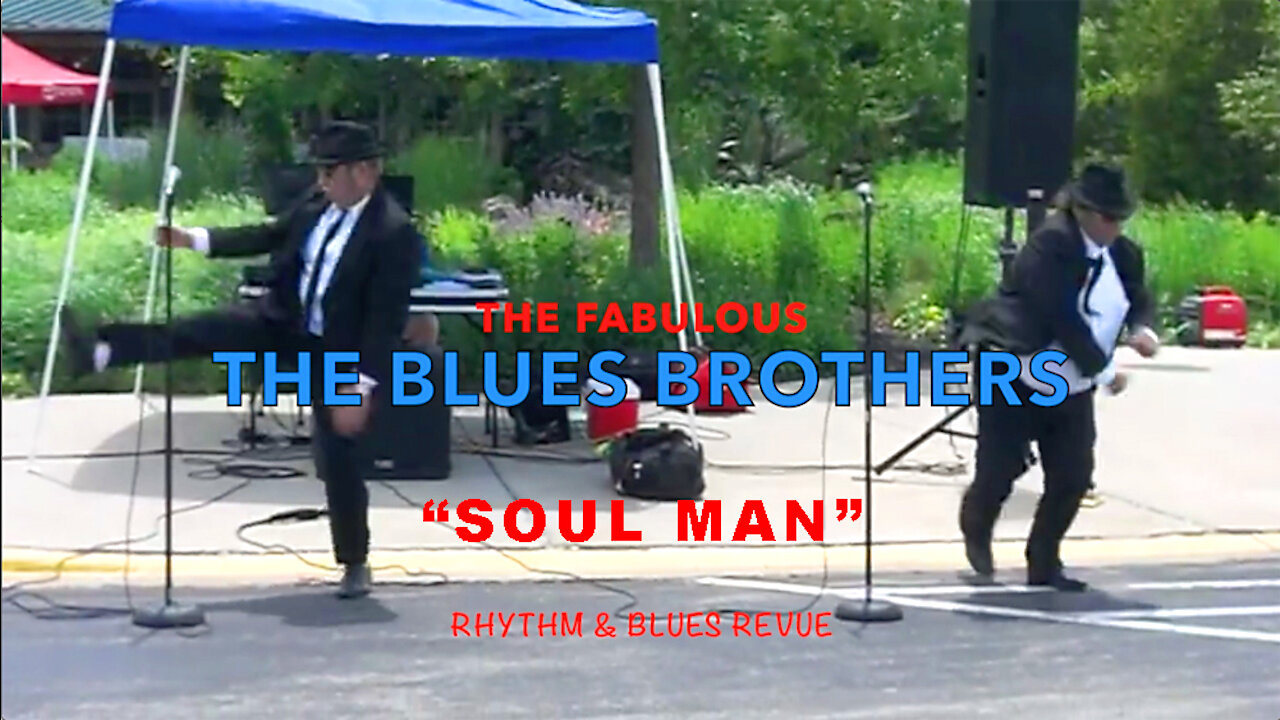
The Blues Brothers "Soul Man"
A Blues Brothers tribute act entertains the crowd while performing "Soul Man" at Bass Pro in Olathe, Kansas during a Pontiac Car Show a few years ago.
Lyrics:
Comin' to ya on a dusty road
Good lovin' I got a truck load
And when you get it you got something
So don't worry cause I'm coming
I'm a soul man
I'm a soul man
I'm a soul man
I'm a soul man
Got what I got the hard way
And I'll make it better each and every day
So honey don't you fret
'Cause you ain't seen nothing yet
I'm a soul man
I'm a soul man
Play it Steve!
I'm a soul man
I'm a soul man
Listen
I was brought up on a side street
I learned how to love before I could eat
I was educated from good stock
When I start lovin' I just can't stop
I'm a soul man
I'm a soul man
I'm a soul man
I'm a soul man
Well grab the rope and I'll pull you in
Give you hope and be your only boyfriend
Yeah, yeah, yeah, yeah
I'm a soul man
I'm a soul man
You're a soul man
I'm a soul man
I'm a soul man
I'm a soul man
Check out this other Blues Brothers tribute song: https://rumble.com/vcvrvv-the-blues-brothers-theme-from-rawhide.html
Wikipedia -
Movie Casting:
At Aykroyd's demand, soul and R&B stars James Brown, Cab Calloway, Ray Charles and Aretha Franklin were cast in speaking parts to support musical numbers built around them. This later caused friction in the production between Landis and Universal, as its costs far exceeded the original budget. Since none of them except Charles had had any hits in recent years, the studio wanted the director to replace them with—or add performances by—younger acts, such as Rose Royce, whose "Car Wash" had made them disco stars after its use in the 1976 film of that name.
Other musicians in the cast include Big Walter Horton, Pinetop Perkins, and John Lee Hooker (who performed "Boom Boom" during the Maxwell Street scene). The members of The Blues Brothers Band were themselves notable. Steve Cropper and Donald Dunn are architects of the Stax Records sound (Cropper's guitar can be heard at the start of the Sam & Dave song "Soul Man") and were half of Booker T. & the M.G.'s. Horn players Lou Marini, Tom Malone, and Alan Rubin had all played in Blood, Sweat & Tears and the house band on Saturday Night Live. Drummer Willie Hall had played in The Bar-Kays and backed Isaac Hayes. Matt Murphy is a veteran blues guitarist. As the band developed at Saturday Night Live, pianist Paul Shaffer was part of the act and thus cast in the film. However, due to contractual obligations with SNL, he was unable to participate, so actor-musician Murphy Dunne (whose father, George Dunne, was the Cook County Board President) was hired to take his role.
Fisher, Freeman, Gibson, and Candy were cast in non-musical supporting roles. The film is also notable for the number of cameo appearances by established celebrities and entertainment-industry figures, including Steve Lawrence as a booking agent, Twiggy as a 'chic lady' in a Jaguar convertible whom Elwood propositions at a gas station, Steven Spielberg as the Cook County Assessor's clerk, Landis as a state trooper in the mall chase, Paul Reubens (before he became Pee-wee Herman) as a waiter in the restaurant Chez Paul restaurant, Joe Walsh in a cameo as the first prisoner to jump up on a table in the final scene, and Chaka Khan as the soloist in the Triple Rock choir. Muppet performer Frank Oz plays a corrections officer, and in the scene where the brothers crash into Toys R Us, Grover and Kermit the Frog toys can be spotted while a customer (played by stunt coordinator Gary McLarty) asks the cashier if they have a Miss Piggy doll, another Muppet character who is voiced by Oz. Singer/songwriter Stephen Bishop is a Illinois State Trooper who complains that Jake and Elwood broke his watch (a result of the car chase in the mall). Makeup artist Layne Britton is the old card player who asks Elwood, 'Did you get me my Cheez Whiz, boy?' The character portrayed by Cab Calloway is named Curtis as a homage to Curtis Salgado, an Oregon blues musician who inspired Belushi while he was in that area filming Animal House.
Over 500 extras were used for the next-to-last scene, the blockade of the building at Daley Center, including 200 National Guardsmen, 100 state and city police officers, with 15 horses for the mounted police (and three each Sherman tanks, helicopters, and fire engines).
Filming
Principal photography began in July 1979, with the film's budget still not settled. For the first month, things ran smoothly on and off the set. When Weiss saw the supposedly final $17.5 million budget, he reportedly joked, 'I think we've spent that much already.'
In the next month, the production began falling behind schedule. Much of the delay was due to Belushi's partying and carousing. When not on the set, he went out to his familiar Chicago haunts such as Wrigley Field and the Old Town Ale House. People often recognized him and slipped him cocaine, a drug he was already using heavily on his own, hoping to use it with him. 'Every blue-collar Joe wants his John Belushi story', said Smokey Wendell, who was eventually hired to keep it away from the star. As a result of his late nights and drug and alcohol use, Belushi would often miss unit calls (the beginning of a production day) or go to his trailer after them and sleep, wasting hours of production time. One night, Aykroyd found him crashing on the sofa of a nearby house, where Belushi had already helped himself to food in the refrigerator.[7]
Cocaine was already so prevalent on the set (like many other film productions of that era) that Aykroyd, who used far less than his partner, claims a section of the budget was actually set aside for purchases of the drug during night shooting. The stars had a private bar, the Blues Club, built on the set, for themselves, crew, and friends. Carrie Fisher, who was Aykroyd's girlfriend at that time, said that most of the bar's staff doubled as dealers, procuring any drug patrons desired.
The movie's original budget was quickly surpassed, and back in Los Angeles, Wasserman grew increasingly frustrated. He was regularly confronting Ned Tanen, the executive in charge of production for Universal, over the costs. Sean Daniel, another studio executive, was not reassured when he came to Chicago and saw the production had set up a special facility for the 70 cars used in the chase sequences. Filming there, which was supposed to have concluded in the middle of September, continued into late October.
On the set, Belushi's drug use worsened. Fisher, who herself later struggled with cocaine addiction, said Landis told her to keep Belushi away from the drug. Wendell was hired to clear any from the places Belushi visited off-camera. Nevertheless, at one point, Landis found Belushi with what he described as a 'mountain' of cocaine on a table in his trailer, which led to a tearful confrontation in which Belushi admitted his addiction and feared it could eventually kill him.
After Aykroyd and Belushi's wife Judy had a talk with Belushi about his antics, the production returned to Los Angeles. Filming there again ran smoothly, until it came time to shoot the final sequence at the Hollywood Palladium. Just beforehand, Belushi fell off a borrowed skateboard and seriously injured his knee, making it unlikely he could go through with the scene, which required him to sing, dance, and do cartwheels. Wasserman persuaded the city's top orthopedic surgeon to postpone his weekend plans long enough to stop by and sufficiently anesthetize Belushi's knee, and the scene was filmed as intended.
Locations
Much of The Blues Brothers was shot on location in and around Chicago between July and October 1979, including Joliet Correctional Center in nearby Joliet, Illinois, and Wauconda, Illinois, where the car crashes into the side of Route 12.[13] Made with the cooperation of Mayor Jane M. Byrne, it is credited for putting Chicago on the map as a venue for filmmaking.[14] Nearly 200 movies have been filmed in Chicago. In an article written to mark the film's 25th Anniversary DVD release, Aykroyd told the Chicago Sun-Times: 'Chicago is one of the stars of the movie. We wrote it as a tribute.'
Film screenshot showing a police car driving through a shopping mall: Scattered items are present on the floor and people are running away from the vehicle. Stores visible in the mall include Toys 'R' Us and Jewel.
The Bluesmobile races through the mall while being chased by state troopers.
The first traffic stop was in Park Ridge, Illinois. The shopping mall car chase was filmed in the real, albeit shuttered, Dixie Square Mall, in Harvey, Illinois.[16] The bridge jump was filmed on an actual drawbridge, the 95th Street bridge over the Calumet River, on the southeast side of Chicago. The main entrance to Wrigley Field (and its sign reading 'Save lives. Drive safely, prevent fires') makes a brief appearance when the 'Illinois Nazis' visit it after Elwood falsely registers the ballpark's location, 1060 West Addison, as his home address on his driver's license. (Elwood's Illinois driver's license number is an almost-valid encoded number, with Aykroyd's own birth date embedded.) Jake's final confrontation with his girlfriend was filmed in a replica of a section of the abandoned Chicago freight tunnel system. The other chase scenes included lower Wacker Drive, Lake Street, and Richard J. Daley Center.
In the final car chase scene, the production actually dropped a Ford Pinto, representing that which was driven by the 'Illinois Nazis', from a helicopter at an altitude of about 1,200 feet—and had to gain a Special Airworthiness Certificate from the Federal Aviation Administration to do it.[18][19] The FAA was concerned that the car could prove too aerodynamic in a high-altitude drop, and pose a threat to nearby buildings.[20] The shot leading up to the car drop, where the 'Illinois Nazis' drive off a freeway ramp, was shot in Milwaukee, Wisconsin, near the Hoan Bridge on Interstate 794. The Lake Freeway (North) was a planned but not completed six-lane freeway, and I-794 contained an unfinished ramp off which the Nazis drove.[21] Several Milwaukee skyscrapers are visible in the background as the Bluesmobile flips over, notably the U.S. Bank Center.
Richard J. Daley Center is Chicago's premier civic center and features a massive sculpture by Pablo Picasso.
The Palace Hotel Ballroom, where the band performs their climactic concert, was at the time of filming a country club, but later became the South Shore Cultural Center, named after the Chicago neighborhood where it is located. The interior concert scenes were filmed in the Hollywood Palladium.
The filming in downtown Chicago was conducted on Sundays during the summer of 1979, and much of downtown was cordoned off from the public. Costs for filming the largest scene in the city's history totaled $3.5 million.[11] Permission was given after Belushi and Aykroyd offered to donate $50,000 to a charity after filming.[11] Although the Bluesmobile was allowed to be driven through the Daley Center lobby, special breakaway panes were temporarily substituted for the normal glass in the building.[11][23] The speeding car caused $7,650 in damage to 35 granite paver stones and a bronze air grille in the building.[11] Interior shots of the elevator, staircase, and assessor's office were all recreated in a film set for filming.
Bluesmobile
Main article: Bluesmobile
The film used 13 different cars bought at auction from the California Highway Patrol to depict the retired 1974 Mount Prospect, Illinois Dodge Monaco patrol car. The vehicles were outfitted by the studio to do particular driving chores; some were customized for speed and others for jumps, depending on the scene. For the large car chases, filmmakers purchased 60 police cars at $400 each, and most were destroyed at the completion of the filming.[24] More than 40 stunt drivers were hired, and the crew kept a 24-hour body shop to repair cars.[24]
For the scene when the Blues Brothers finally arrive at the Richard J. Daley Center, a mechanic took several months to rig the car to fall apart.[24] At the time of its release, The Blues Brothers held the world record for the most cars destroyed in one film until it was surpassed by a single car in its 1998 sequel.
Post-production
Landis' difficulties continued even after principal photography was completed. The first cut of The Blues Brothers lasted two and a half hours, with an intermission. After one early screening, Wasserman demanded it be shortened, and 20 minutes were cut. The film's final budget was $27.5 million (equivalent to $85 million in 2019), $10 million over its original budget.
Prospects for a successful release did not look good. Aykroyd and Belushi had left SNL at the end of the previous season, reducing their bankability. Belushi's fame had taken a further hit after the critical failure of Spielberg's film 1941 at the end of the year. One day after the editing was done, Wasserman invited Landis up to his office to speak with Ted Mann, head of the Mann Theatres chain, which dominated film exhibition in the Western United States. He told Landis that he would not book the film at any theaters in predominantly white neighborhoods, such as Westwood. Not only did Mann not want black patrons going there to see the film, he surmised that white viewers were unlikely to see a film featuring older black musical stars.[7] Ultimately, the film got less than half the bookings nationwide for its initial release than a typical big-budget studio film of the era, which did not bode well for its success at the box office.
-
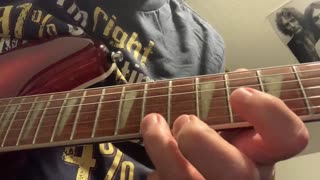 6:53
6:53
Rockinpapa
3 years agoEverybody Needs Somebody to Love-Rolling Stones, Blues Brothers
68 -
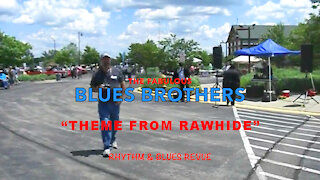 2:26
2:26
Argyle302
4 years ago $0.03 earnedThe Blues Brothers "Theme From Rawhide"
1.13K2 -
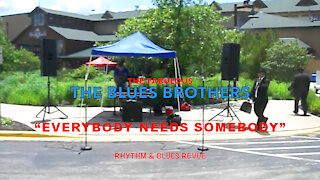 3:51
3:51
Argyle302
4 years ago $0.03 earnedThe Blues Brothers "Everybody Needs Somebody"
1.03K -
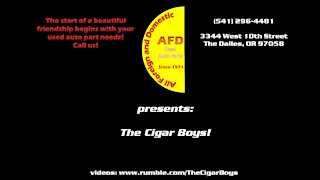 3:13
3:13
CigarBoys
3 years agoHey Bartender from the Blues Brothers, performed by the Cigar Boys!
16 -
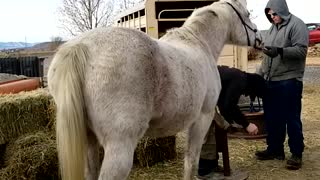 0:08
0:08
jellybell1234
3 years agoBrothers working
641 -
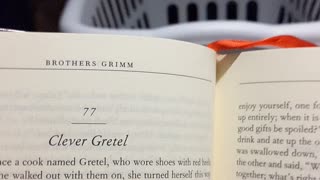 6:22
6:22
markbleep
3 years agoBrothers Grimm Clever Gretel
51 -
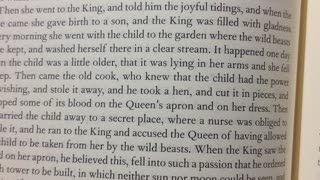 11:43
11:43
markbleep
3 years agoBrothers Grimm : The Pink
40 -
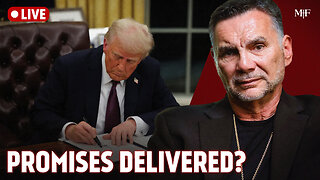 1:33:29
1:33:29
Michael Franzese
1 day agoTrump Wastes No Time: Breaking Down Trump’s First Week Executive Orders | LIVE
138K94 -
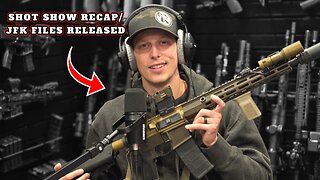 1:26:44
1:26:44
Tactical Advisor
17 hours agoTrump Starting Strong/Shot Show Recap | Vault Room Live Stream 015
98.6K9 -
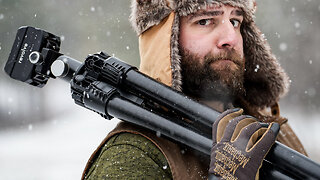 10:18
10:18
MrBigKid
13 hours ago $2.20 earnedInsanely Compact Hunting Tripod you HAVEN'T heard of... Revolve
53.2K5